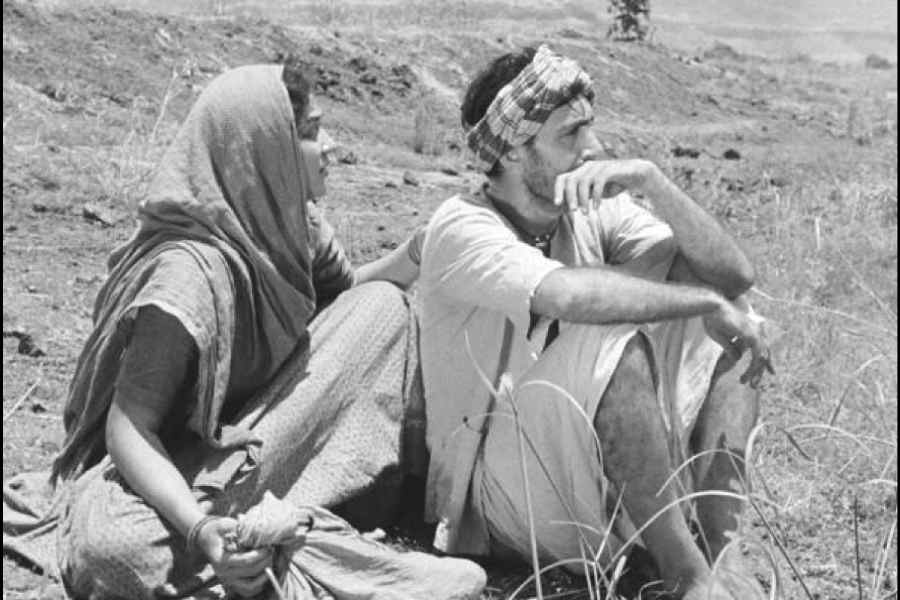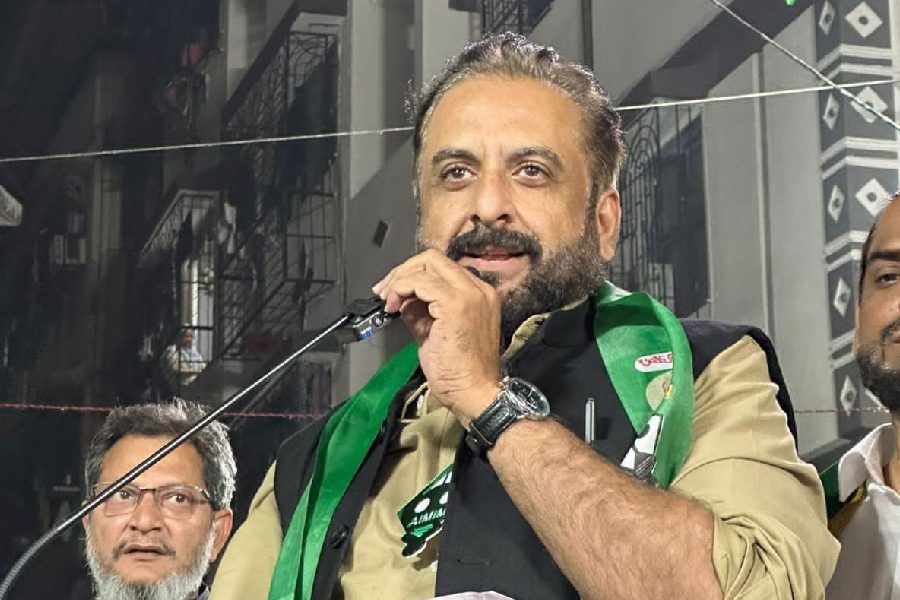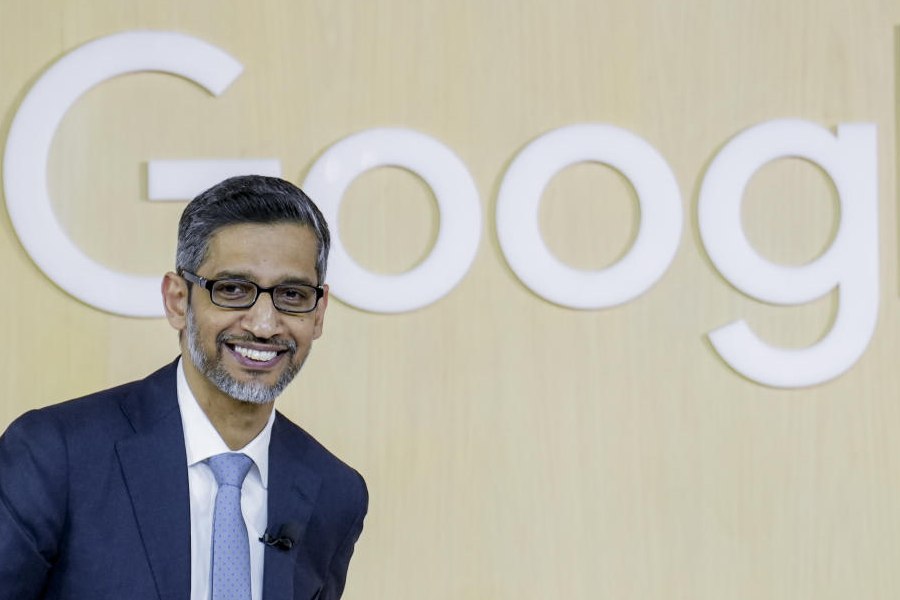Left out
Sir — Hindi cinema has gradually removed farmers from its narratives. In earlier decades, films such as Do Bigha Zameen and Mother India centred on farmers and rural struggles. In more recent times, Peepli Live approached farmer distress with satire and Jawan treated it as a fleeting plot point or spectacle. The post-1991 multiplex era reinforced this shift, as urban audiences became the priority and rural realities were deemed unappealing. Even films that retain village settings, like Laapataa Ladies or Swades, often sideline farmers’ lives in favour of urban-centric storylines or outsiders’ perspectives.
Yashodhara Sen,
Calcutta
Shameful bias
Sir — The exclusion of women journalists from the press conference of Afghanistan’s foreign minister, Amir Khan Muttaqi, in New Delhi demonstrates the subtle ways in which gender discrimination manifests (“Talibani writ in India: No women”, Oct 12). Male reporters attended the press conference while women were left outside, allegedly complying with the Taliban’s protocols. This incident undermines India’s longstanding commitment to gender equality and sends a troubling message about the acceptance of discriminatory practices within its capital. Diplomatic necessity does not require passive compliance with exclusion. India should establish clear guidelines ensuring that press access for international delegations respects gender equity. Silence or bureaucratic distancing from such incidents allows inequality to appear permissible in spaces that should uphold democratic values.
Fakhrul Alam,
Calcutta
Sir — The first press conference by Afghanistan’s foreign minister in Delhi excluding women journalists illustrates a failure of moral leadership. Allowing such an event to proceed without objection normalises exclusion and contradicts India’s democratic principles. Public criticism and procedural clarifications are insufficient. India must publicly reaffirm that diplomatic engagement will not tolerate gender-based exclusion. Equal access to press events should be non-negotiable. Protocol cannot override principles, and allowing foreign delegations to dictate participation risks compromising India’s credibility as a society that respects the rights of women.
Kiran Agarwal,
Calcutta
Sir — The response to the exclusion of women journalists from Amir Khan Muttaqi’s first press conference reflects a deeper issue in public perception. Criticism focused on the Taliban’s rules rather than on the responsibility of hosts to uphold democratic norms. India’s commitment to equality should not be negotiable because of diplomatic etiquette. Male journalists present could have demonstrated solidarity with their female peers. The public discourse should emphasise proactive protection of rights over procedural explanations. Engagement with foreign powers cannot justify overlooking gender discrimination within national borders. A measured stance that prioritises principles over protocol would reinforce the country’s credibility as a democracy that respects equal participation for all citizens, especially women.
Sadiq H. Laskar,
Guwahati
Virtual heritage
Sir — UNESCO’s Virtual Museum of Stolen Cultural Objects offers a digital
platform for reconnecting communities with lost heritage. The museum allows users to explore almost 240 missing items — some recreated with Artificial Intelligence — and highlights restitution cases alongside testimonies from the affected communities. This initiative provides access to cultural objects that would otherwise remain invisible and raises awareness about the impact of colonial looting.
By framing repatriation in a virtual space, UNESCO creates a practical, immediate solution for cultural education and engagement while logistical and political challenges surrounding the physical return of objects continue to be addressed.
Sreemoy Ghose,
Calcutta
Unseen labour
Sir — India’s caregivers form an invisible workforce essential for the exercise of rights guaranteed under Article 21 of the Constitution. Without access to dignified care, persons with disabilities cannot participate fully in society. Nearly one in four Indians is either a person with a disability or a caregiver. Current initiatives are fragmented and limited in reach, leaving most caregivers unacknowledged. A national framework must treat care as social infrastructure, providing regular allowances, respite, and training. This approach would enable caregivers to pursue paid work and uphold the constitutional promise of life with dignity for all citizens.
A.K. Sen,
Calcutta
Symbolic prize
Sir — The Nobel Peace Prize is carefully curated and symbolic. Activists who challenge systemic injustice, from anti-colonial movements to militant civil-rights leaders, rarely receive recognition.
Birkha Khadka Duvarseli,
Siliguri










